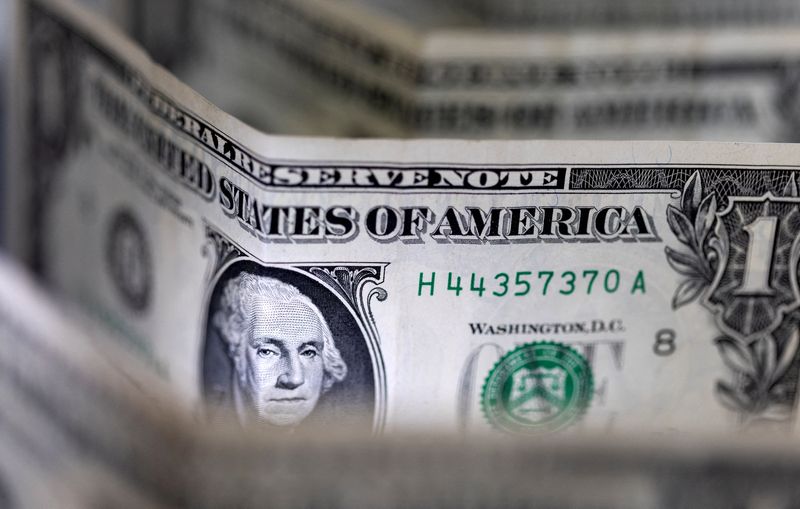By Peter Nurse
Investing.com - The U.S. dollar edged lower in early European trade Tuesday ahead of the release of the hotly anticipated U.S. inflation data, which is likely to set the tone ahead of next week’s Federal Reserve meeting.
At 03:05 ET (07:05 GMT), the Dollar Index, which tracks the greenback against a basket of six other currencies, traded 0.3% lower to 107.803, continuing its pullback from the 20-year high of 110.79 seen last week.
All eyes Tuesday will be on the release of the August U.S. consumer price index at 08:30 ET (12:30 GMT), which will be the last significant guide of the country’s inflationary pressures ahead of next week’s Fed policy-setting meeting.
Analysts expect the headline number to be 8.1%, which would be down from 8.5% in July, with gasoline prices having fallen nearly 10% since last month. On a monthly basis, the outlook is for inflation to fall 0.1%, where it was flat the prior month.
The market will be looking at not just the headline number but the core number that strips out food and fuel to see what the month-to-month trend is.
“It will take some surprising numbers to make the Fed deviate from a third consecutive 75bp rate hike,” analysts at ING said, in a note. “After all, the economy is posting decent growth, creating jobs in significant numbers, and Fed Chair Jerome Powell is arguing that ‘we need to act now, forthrightly, strongly as we have been doing and we have to keep at it until the job is done’.”
The markets are currently factoring in roughly a 90% chance that the Federal Reserve lifts its benchmark interest rate by 75 basis points at next week's meeting.
Elsewhere, EUR/USD rose 0.2% to 1.0139, with the euro continuing to benefit from last week’s jumbo rate hike by the European Central Bank and the associated hawkish comments by a number of officials, including the influential Deutsche Bundesbank President Joachim Nagel, pointing to further rate increases this year.
German inflation remained elevated in August at 7.9% on the year, data released earlier Tuesday showed, and this is expected to result in a very weak German ZEW economic sentiment index, later in the session.
GBP/USD rose 0.3% to 1.1708, continuing the steep gains seen overnight, despite employment growth in the U.K. slowing sharply in the three months through July.
The Office for National Statistics said only 40,000 net jobs were created in the period, down from 160,000 in the three months through June. Even so, the jobless rate fell to 3.6% of the population, its lowest in nearly 50 years, because of the number of people leaving the workforce altogether.
USD/JPY fell 0.3% to 142.44, with the yen eking out small gains against the dollar as speculation of intervention from Japanese officials to support the beleaguered currency continued to circulate.
Risk sensitive AUD/USD was largely unchanged at 0.6885 after data showed that consumer and business sentiment remained subdued in the country, despite a mild improvement in recent months.
